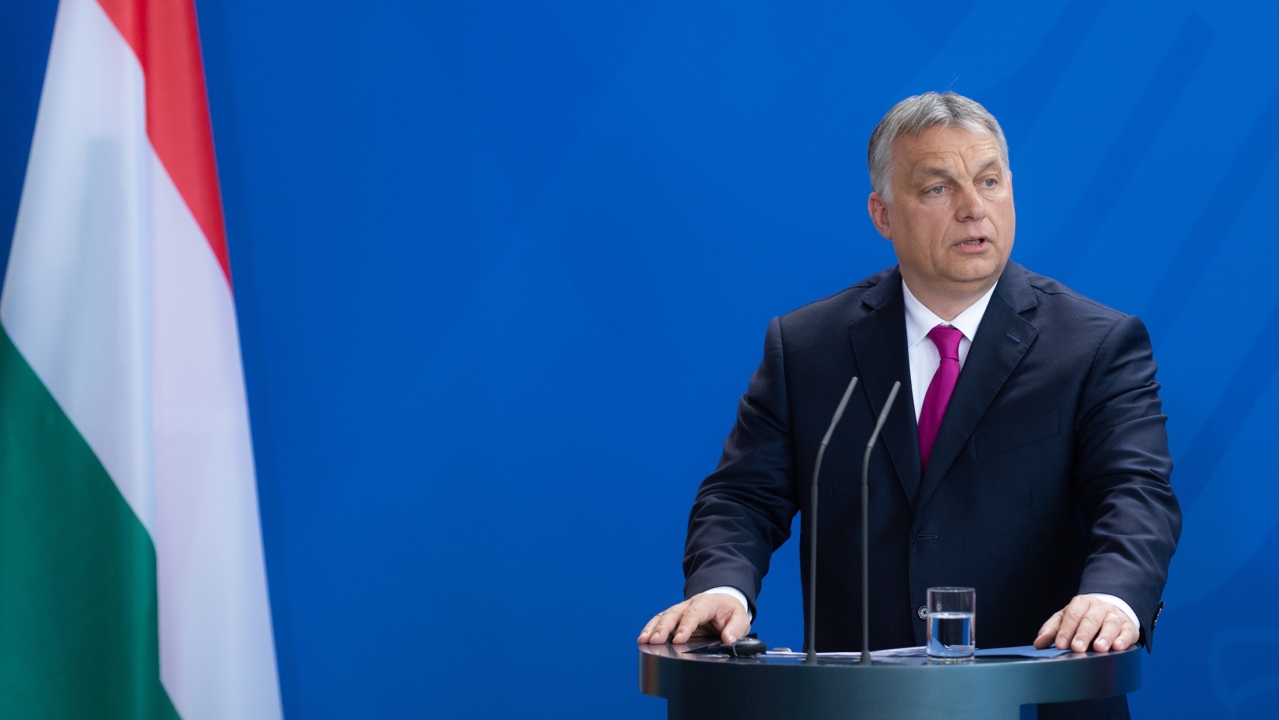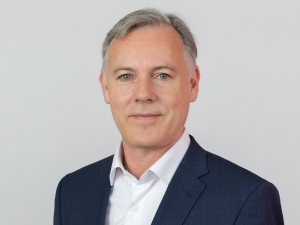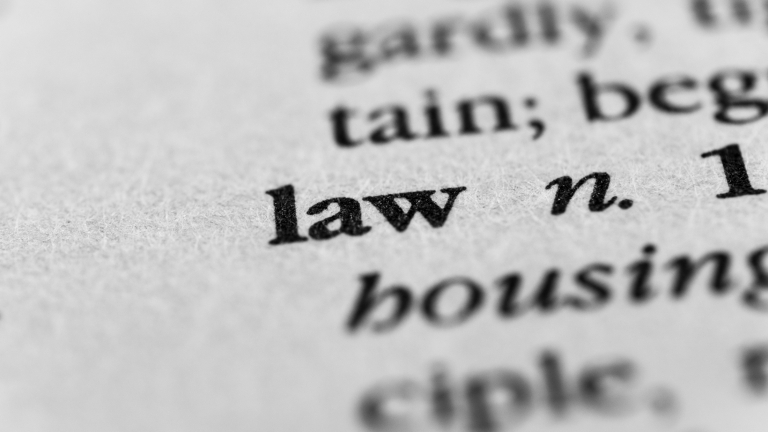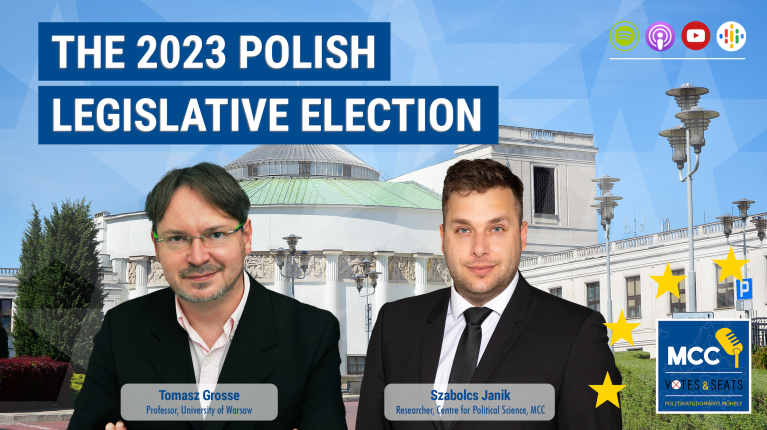„My co-citizens!”, Orbán began, and already this emphasis on „citizens”, rather than „comrades”, was a provocation in those last few months of the communist regime. He demanded free elections; the departure of Russian occupation troops; and he spoke of Hungary’s long struggle for freedom and independence, against the Austrians in 1848, and against the Russians in 1956. Now was the time, he said, to finally attain the „Nations’s never abandoned goals”.
It was, in then still communist Hungary, the loudest cry for freedom since 1956. All those who heard it were electrified, not only in Hungary but also in the West. Clearly, here was a man like Vaclav Havel in (then) Czechoslovakia, or Lech Walesa in Poland. A dissident whom History was suddenly catapulting to become a leader of his country. Havel, Walesa, Orbán: None of them had „learned” politics. No political party’s machinery had ground and polished them. They acted according to their instincts, were led by what they knew to be common sense, and learned the craft of politics by doing it.
But possibly, amongst these, Orbán was the only one who really enjoyed it.
Back then, he was a rebel. Today, more than 30 years later, he is the most experienced head of government in Europe, five times elected (1998, 2010, 2014, 2018 and 2022). A winner, but one who had to stand up a few times after suffering heavy blows. He won so many battles against all odds that he might be forgiven to think that if the odds are stacked against him, it must be a good sign. He stood up to the still powerful communist dictatorship, as a powerless young man, and prevailed. He won elections in 1998 and 2010, despite the almost monopolistic dominance of leftwing and liberal media. He stared down financial speculators when they bet against Hungary in 2011. He prevailed against the pressure of foreign banks and multinational companies when he saddled them with extra taxes and forced banks to stop issueing valuta-denomitated household loans. He prevailed against the pressure of the Great and the Good in the EU, who wanted to stop him from transforming Hungary in a „national” spirit. When he stood almost alone in the great debate on migration, arguing that Europe needed to defend its borders, he at least won the debate and was able to protect his country. As I write these lines, in the summer of 2023, he doubts that Ukraine can beat back the Russian invasion, and he may well end up being right again.
In Hungarian politics, he has become the focal point around which everything revolves. If he didn’t exist, Hungary’s opposition would not know what to talk about. Their one message is that Orbán is evil.
It has been a long journey, and along the way, he has learned hard lessons. One is the value of loyalty. Fidesz started out, in a world of communist informers, as a band of friends, tried in battle, who knew they could trust each other blindly, come what may. A good number of them had attended the same student dormitory, Bibó collegium. At one point, three of them were the Prime minister (Orbán), the President (János Áder) and the President of Parliament (László Kövér). Another one, Anikó Levai, became Orbán’s wife. The man who celebrated their church wedding, calvinist priest (now bishop) Zoltán Balog, has been Orbán’s political companion, advisor and close friend since the beginning. He became minister for human ressources, a mammoth ministry that was later split when he left. Some of the new politicians Balog brought in also joined Orbán’s „circle of trust”: Gergely Gulyás, who became chancellery minister, and Katalin Novák, who became Hungary’s first female head of state in 2022. Anyone who has attended any of Fidesz’ summer events – the „summer university” in Transylvanian Tusnádfürdő, or the yearly „Picnic” in Kötcse at lake Balaton – can feel the difference between Hungary’s ruling party and any western political party: There is a family atmosphere to it, a sense that they are all in it together, united by bonds that are stronger than any political viewpoints. Fidesz is a community of likeminded people, rather than just a political party. It includes writers, musicians, academics, actors, in fact people from all walks of life and – of course, critics will say – businessmen.
Orbán values loyalty, and is loyal himself. If for some reason one of his allies is not needed anymore at a given position, or hasn’t fulfilled exceptations, that person will usually be kept in the „family” and given some other job. „There is this sort of clemency, when someone stumbles”, says one man who has been a leading analyst at a think tank close to the government and is today a spokesperson for another organisation. „But when you are in a position to pull your weight, there is no respite, they will drive you to the max.” When you join this family, you can expect hard work. „I don’t give positions, I give work”, Orbán once said. But you can be (almost) sure that you will be taken care of if you burn out.
Loyalty is Orbán’s political currency in international politics, as well. When he agrees to something, promises something, he will always keep his promise. He will never stab anyone in the back. But when others do it to him, he will not hesitate to hit back very hard. His very public battles against German EPP politician Manfred Weber and the then President of the European Commission Jean-Claude Juncker were both preceded by vicious surprise attacks against Orbán from these two politicians.
His opponents and – as with Weber and Juncker – even his supposed allies have tried to kill him more than just a few times (or at least, his reputation). At times, he himself has had to kill, politically speaking. It has changed his face – from eager youngster to battlehardened veteran.
The way people look at him has also changed. Back in 1989, had he become Hungary’s leader, most in the West would have celebrated him. Today, they would celebrate his defeat.
Autocrat, populist, racist, nationalist, dictator: No head of government in the EU gets attacked more viciously. And no other head of government shapes political discourse on the continent like Viktor Orbán.
He always seeks to find and touch the invisible nerve of society. He says out aloud what others in the political class only think. He recognizes rotten taboos, and breaks them with relish. „If he could only shut up!”, Gerald Knaus, head of the think tank European Stability Initiative (ESI) once exclaimed. He likes to call Orbán „the most dangerous man in Europe”. His admirers, for instance Hungary’s Speaker of Parliament László Kövér, think he is Europe’s saviour.
At any rate, apart from Orbán, in all of Europe, only France’s president Emmanuel Macron has a voice in the political debate that can be distinguished as unique and interesting. There used to be Angela Merkel, but she’s gone.
However, it is Orbán against the combined rest, be they be interesting or not, and the rest are winning. Those who chant the refrain of „more Europe”, as opposed to Orbán’s defense of national sovereignty.
What has this man done to deserve so much praise and venom? In a nutshell: He has reinvented civil thought in Hungary from scratch, after communism destroyed not just the very concept of a citizens’ state, but the „bourgeois” strata of society itself. (I prefer the German term „bürgerlich”, or the Hungarian „polgári” - it’s more inclusive and less indicative of upper class).„Responsable citizens” or „polgár” are the strata on which any centrist or conservative party depends. Rebuilding that way of thinking, and also building a new middle class after communism, Orbán succeded in establishing a strong, stable christian democratic party. Normally, that should have been impossible, considering the circumstances.
He started out as a Liberal, but his instincts have always been national conservative. He did use the vocabulary of liberal thought, but in Hungarian these words carry different connotations. Freedom? The collective freedom of society, of the nation, to shape its own destiny. His vision was one of political (meaning: collective) emancipation, and still is. Then, it was emancipation from the Sovjet Union. Today, it is about emancipation from an ever more overbearing European Union. Except that he wanted the Russians to go, but has no intention of leaving the EU, only of trying to reform it. Today’s Orbán could repeat the young Orbán’s speech of 1989, without missing a tone. Citizens! Nation! Freedom!
Still, his vision of Europe is more than just „national sovereignty” within a loose framework of cooperation. His outlook is geopolitical, and he has espoused Emmanuel Macron’s concept of „strategic autonomy” for the European Union. Meaning, independence from US domination, an EU trying to shape its own collective destiny in constructive competition with the USA, China and the Global South. A contradiction? Not if you espouse Orbán’s view that the EU’s preferred method of boosting cohesion and „solidarity” amongst the 27 member states is ever more rules and bureaucracy, and ever stricter enforcement of unquantifiable, at times manipulative „European values” – both of which, according to Orbán, boil down to weakening the EU’s economic competitivity on global markets. Listening to him, I sometimes wonder how things might be different if he had been the leader of not Hungary, but of a global power – say, of the USA, or of Russia.
He grew up in the countryside with a disciplinarian father and a fiercely patriotic, calvinist grandfather, with whom he spent a lot of time. Of his family, he has said that it had „no particular culture”, neither in terms of politics or of religious identity (with the exception of his grandfather). His early years in simple circumstances shaped his character. He doesn’t like it when people don’t speak their minds. He’s a redneck by nature, but one who’s read a lot of books. The practical-minded man from the countryside detests things that don’t work. That’s why he didn’t like communism, that’s why today he doesn’t like many aspects of EU policymaking.
Two other things that shaped his youth were football and folk music. He remained a registered player for his home team of Felcsút even after he became prime minister. On the team’s bus, they would travel to outward games and sing folk songs. „That’s were I learned them, I probably know more than a hundred songs”, he once confided to me – at a folk music event in Budapest. Football and folk music both were eminently political. Both were symbols of national pride and identity. In fact, a „dance house” movement evolved in Hungary in the 1970s as an expression of passive resistance to the communist world view.
In politics, Orbán and his gang of young rebels started out as romantic Liberals. Orbán once explained the difference between then and now: „Back then, we were somewhere between politics and literature. Now, we have families and kids.” But, as a number of them have pointed out over the years, their ideal was the „Liberalism” of Ronald Reagan (and perhaps the music of Frank Zappa). After all, it was Reagan who had forced the Soviet Union on its knees. In Germany, Orbán’s political mentor as a liberal was Otto Graf Lambsdorff, again a conservative character, liberal only in the sense of defending market economy and low taxes.
In other words, under the liberal label there was, from the very beginning, a big dose of mostly anglosaxon conservatism. When he went to Oxford, with a grant from George Soros, Orbán befriended the British historian Norman Stone, a no-nonsense conservative and former advisor of Margaret Thatcher. They remained on friendly terms until Stone’s death 2019. He died in Budapest – Orbán had invited him to write a book on Hungarian History. As it turned out, it was to be his last.
So Fidesz started out as an officially liberal party. But there was a problem. By the mid-1990s, it became clear that the political space for Liberalism in Hungary was already occupied. There was not enough room for the leftwing liberal party SZDSZ and a liberal Fidesz. At the same time, an opening appeared on the right side of the political spectrum. The Hungarian Democratic Forum (MDF), who had been Hungary’s first democratically elected governing party after communism, disintegrated. Orbán pushed into this vaccuum and transformed Fidesz into a conservative party. Partially thanks to the influence of his devout, catholic wife, he became a churchgoing and very public Christian, although he opted for Calvinism rather than Catholicism. As far as I can tell, Orbán’s Christian credo is real. But it also helps him politically, and he does use it as a political instrument.
In 1998, he won his first election as a conservative and, only 35 years old, became Prime Minister. He has said that his role model for the job was Germany and the Christian Democratic Union (CDU) of then-Chancellor Helmut Kohl, to whom he went for advice.
What followed were four good years for Hungary. Orbán restructured the Chancellery in a way that resembled Germany’s Bundeskanzleramt. Many laws of his first government were modelled on German laws. The economy grew, public debt shrank. His government invested in family subsidies and education, in order to create a middle class from scratch – because he was convinced that without a civil („polgári”, „bürgerlich” in German) middle class, neither the country nor democracy had a future.
The Orbán of those years was a believer in the vision of liberal democracy, the vision of of Helmut Kohl or Bill Clinton: „It’s the economy, stupid!” Orbán was convinced that if he governed well, if unemployment, inflaction and public debt went down, while salaries and the economy grew, then voters would reward that and reelect him.
But he had to realize that it wasn’t that simple. In 2002, he lost, by the slimmest of margins. That came as a shock. What had gone wrong?
One thing he had not sufficiently taken into account were the media. Ever since the end of communism, when the media of the dictatorship overnight became „independent private media” in mostly foreign ownership, but with the same old socialist journalists and editors, they had been overwhelmingly onboard with the political Left, and rather critical of Conservatives. They had played a major role in defeating the conservative government of József Antall in 1994, and had now helped to create an atmosphere that was detrimental to Orbán and Fidesz. Orbán had known that the media were hostile, but had not made it a priority to deal with the problem. After all, had he not won despite the media in 1998?
Lesson learned. Orbán did make it a priority to do something about the media even before he returned to power in 2010. Beginning in 2006, businessmen close to Fidesz began buying or founding media outlets. When „Magyar Hírlap”, a paper close to the liberal SZDSZ party, ran out of money (because the party collapsed), it was bought by Gabor Szeles, owner of big companies like Ikarus and Videoton. The paper now became espoused a national conservative spirit.
By 2010, the global financial crisis, and socialist ineptitude at governing the country had created the conditions for Orbán’s return to power. Voters were fed up with what they perceived to be a horrible mess in the economy, and an incompetent government. Orbán rode in on a landslide electoral victory and immediately began to reshape the media market. Public media, who had continued to be a socialist bastion even after communism, were centralized. Many journalists were let go, others were brought in. New, conservative media were created, existing media were bought up and transformed.
He reformed the judicial and the electoral system, triggering massive criticism not just on the Left, but also from EU institutions and even Christian Democratic allies. But in reality, the „problem” at the core of „Orbán’s grip on power” is not so much an alleged „authoritarian system” but rather the fact that people like to vote for him. Even those who don’t like him all that much. Because the alternative would be to hand power to Hungary’s mixed bag of chaotic and hapless opposition parties, the strongest of which has a track record of leading the country into something very close to bankrupcy, while another of these parties made its mark in political history as an openly antisemitic and antitsiganist rabble, complete with a paramilitary outfit intent on spreading fear and loathing amongst Jews and Roma. So, most Hungarians said: Thank you, but no thank you.
The main reson why Hungarians keep voting for Orbán is that at the core of his policies have been the economy and the strengthening of an affluent middle class. His governments have introduced a cap on public debt into the constitution, even as income tax (15%) and corporate tax (9%) were reduced. Tax efficiency, on the other hand, increased. Unemployment benefits were slashed from 12 to three months, and strict conditions were set for early retirement, as well as retirement due to health reasons. As a result, the share of Hungarians holding a job increased dramatically. The bottom line is that all economics indicators turned positve until the Covid crisis in 2020. Even then, Hungary weathered the crisis better than most other EU countries.
The Russian invasion of Ukraine in 2022 was a more serious matter, economically speaking. Hungary suffered the highest inflation in the EU. For the first time under an Orbán government, real wages shrank. That crisis conincided with the EU’s decision to withhold billions of Euros of EU funds for Hungary due to „Rule of Law” concerns. We will see if such economic woes will affect the next election, but so far, Hungarians have kept voting for Orbán because they could feel their lives getting better. His political future will depend on keeping it hat way.
Much more than anything else, he has proven to be a pragmatist, a realist. His special skill, compared to other European leaders, is that he combines clever tactical realism with strategic wisdom and a vision for the future of his country, trying to figure out what the future may hold decades from now.
His has said this about his recipe for success: „With us, even those who vote against us will fare better” (economically).
As for him being a power-hungry authoritarian, he has said this about the meaning of power: „My definition of power – it may not be entirely compatible with the way it is defined by political scientists – is that power is the capacity to act together. That’s how I use it in my work”.
Food for thought.










